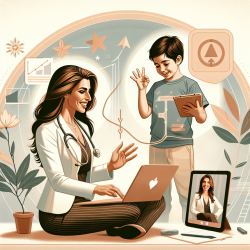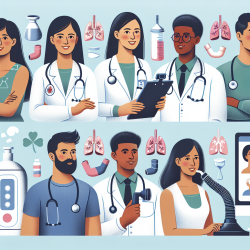Introduction
In today's digital age, social media plays a significant role in the lives of teenagers, including those with chronic illnesses. The research article “Not all my friends need to know”: a qualitative study of teenage patients, privacy, and social media provides valuable insights into how teenage patients manage their privacy online. This blog aims to help practitioners enhance their skills by implementing the findings of this study and encouraging further research into this critical area.
Key Findings from the Study
The study reveals that most teenage patients do not disclose personal health information on social media platforms like Facebook. Instead, they use these platforms to maintain a sense of normalcy and stay connected with their social circles. The study identifies several key themes:
- Online Information-Seeking Behavior: Teenage patients rarely seek health-related information online, preferring to rely on their healthcare providers for such information.
- Online Communication: Facebook is the primary platform for communication, replacing traditional email for many teenagers.
- Applied Privacy Awareness: Teenagers employ various privacy techniques, such as restrictive privacy settings and selective befriending, to manage their online presence.
- Self-Protection: Many teenagers avoid discussing their health conditions online to protect themselves from unwanted attention and questions.
- Self-Definition: Social media is a space where teenagers can define themselves beyond their health conditions, presenting a version of themselves that aligns with their identity as regular teenagers.
Implications for Practitioners
Practitioners working with teenage patients can leverage these insights to improve their therapeutic approaches and communication strategies:
- Respect Privacy: Understand that teenagers value their privacy and may not want to discuss their health conditions openly. Respect their boundaries and encourage open dialogue in a safe and private setting.
- Promote Privacy Education: Educate teenagers about privacy settings and the potential risks of sharing personal information online. Help them navigate social media safely and responsibly.
- Encourage Self-Expression: Support teenagers in using social media as a tool for self-expression and identity formation. Encourage them to share their experiences and connect with peers in a way that feels comfortable and empowering.
- Facilitate Peer Support: Recognize the value of peer support networks and encourage participation in platforms like Upopolis, where teenagers can connect with others facing similar health challenges.
Encouraging Further Research
This study highlights the need for further research into the privacy behaviors of teenage patients on social media. Future studies could explore the impact of different social media platforms, the role of healthcare providers in supporting online privacy, and the long-term effects of social media use on teenage patients' well-being.
To read the original research paper, please follow this link: “Not all my friends need to know”: a qualitative study of teenage patients, privacy, and social media.










